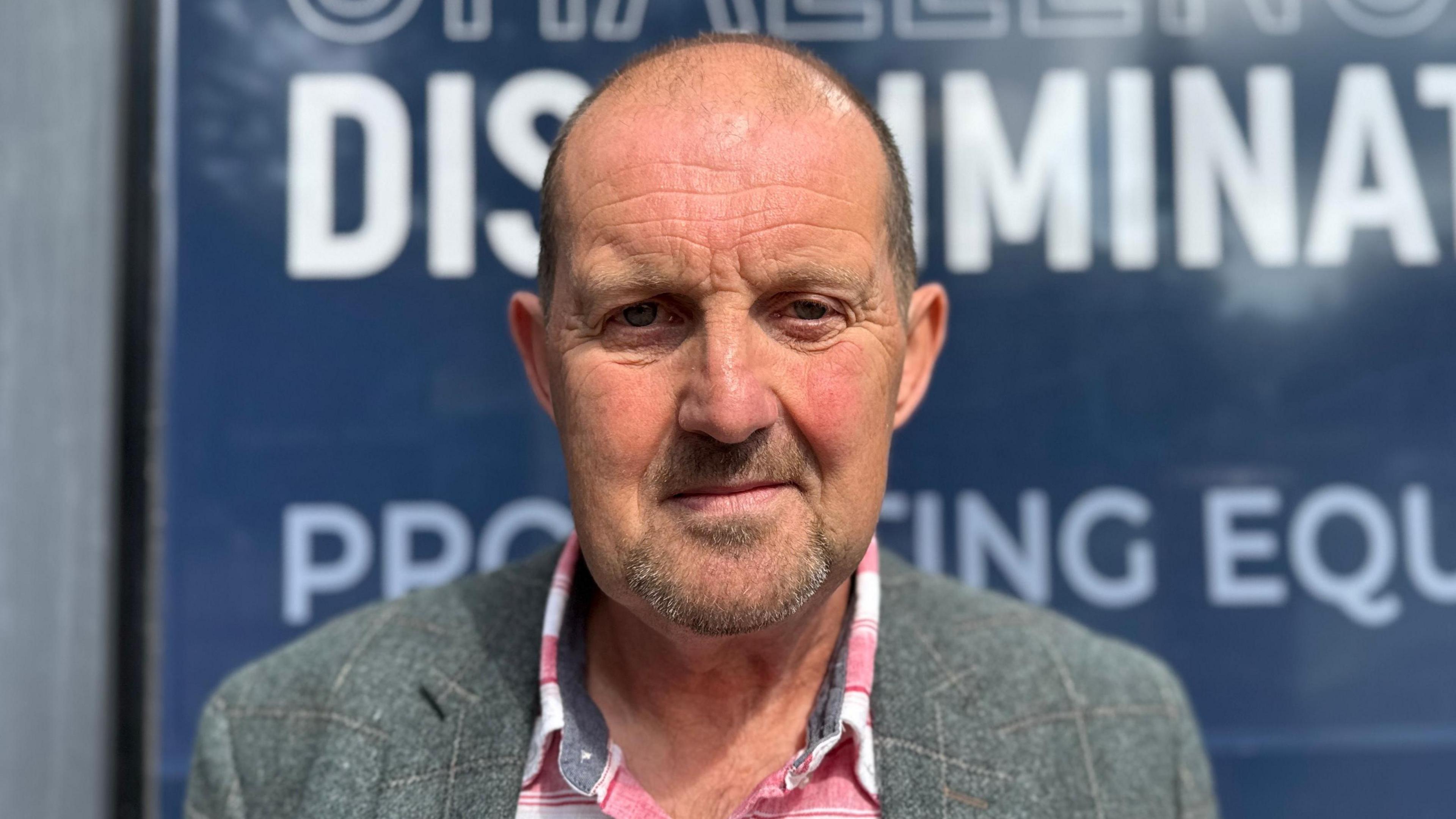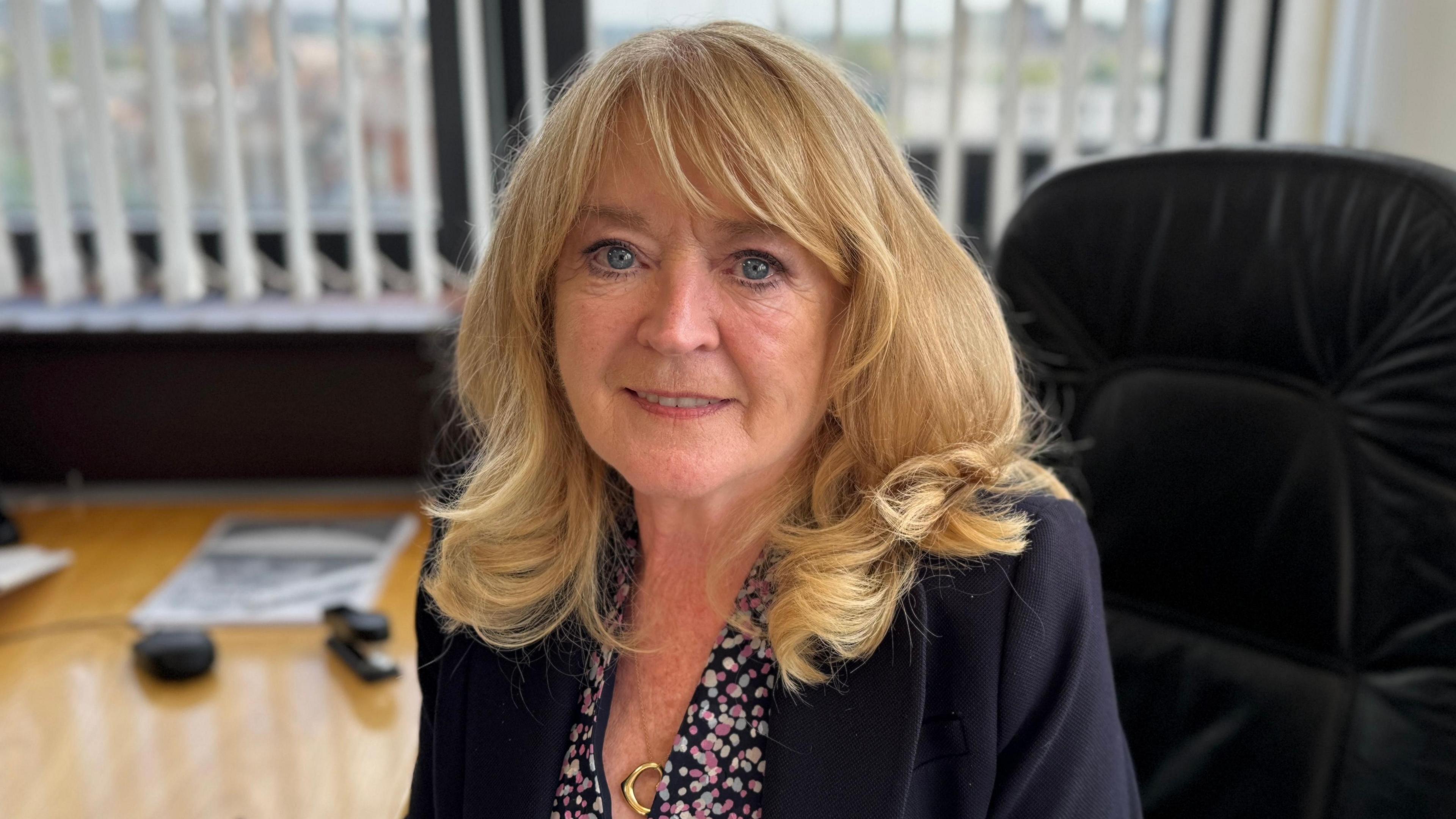Stroke survivor settles job discrimination case for £100k

Cliff Donaldson suffered from two strokes back in January 2023, and took eight weeks off work to recover
- Published
A man who said he lost his job after suffering two strokes has settled a disability and age discrimination case against his former employer for £100,000.
Cliff Donaldson's speech and movement were affected after he took ill in January 2023, which led to him cutting his working hours and taking a reduced salary.
The former property site manager took the case against Fraser Partners Ltd after a new, younger site manager was recruited and Mr Donaldson was told his employment would end in September 2023.
A spokesperson for Fraser Partners, which settled the case without admission of liability, said they "strongly deny the claims made but chose to settle in order to avoid a lengthy legal process".
"We remain fully committed to equality, fairness, and inclusion in the workplace, and continue to review our policies to ensure they meet the highest standards," a statement added.
'I didn't know if I had a future'
Speaking to BBC News NI, Mr Donaldson said he joined Fraser Partners - previously known as Fraser Estates - in 1986 as a civil engineer, before being asked to take on a housing development management role in 2016.
After suffering two strokes, the 63-year-old, who lives in Belfast, took eight weeks off work before returning on a phased basis.
However, he said he "never in a million years" expected to be told his employment was coming to an end during a regular weekly meeting.
"It was such a shock to me that after 40 years of association with the company that I was let go," he said.
Mr Donaldson said he was extremely disappointed, and his mental health suffered "tremendously".
"Two weeks after I found out I was let go was the worst of my life because I didn't know if I had a future at all," he added.
"When you have a stroke, it changes your life, you wonder: 'How am I going to look after my family?'
"You have no income, you don't have a job. You wonder where the next step is coming from."

Mr Donaldson worked as a property site manager with Fraser Partners Ltd since 2016
Mr Donaldson's case was supported by the Equality Commission for Northern Ireland which, he said, helped him to feel less alone.
"I have so much to give still. I'm in counselling at the moment and my physical condition has been improved in the last two years," he said.
"I hope the counselling will help me return to my usual self, but that could take time."
Employees feeling 'abandoned'
Geraldine McGahey of the Equality Commission said the organisation got involved in Mr Donaldson's case as many people can relate to being with an employer for a long time and feel alone when things go wrong.
"Employers need to be aware of their obligations, they must fulfil their obligations under the Disability Discrimination Act," she said.
"I think Cliff's case illustrates very clearly that employers have that obligation but they also must tell their employees about their rights."
The commission's chief said Mr Donaldson felt "very abandoned" and needed the support of his employer.
"A good employer would tell an employee like Cliff: 'This is what I have to do with you, this is how we're going to work together'... because they have an obligation to make reasonable adjustments to help that employee stay at work.
"They [Fraser Partners Ltd)] should have communicated with Cliff, they should have talked to him about what his needs were, and they should have sought to try to re-train or retain some of that valuable experience that Cliff had built up over 40 years," Mrs McGahey said.

Geraldine McGahey, chief of the Equality Commission in Northern Ireland
Mrs McGahey said the resolution has resulted in a large settlement, and the commission has worked with the company to review their policies and procedures, and support them to get things right.
"Because if you don't get things right, it costs you a lot of money and a lot of actual reputation for your business as well," she added.
"People will be impacted by this story, they will consider how employers behave and treat their employees and that can impact on their loyalty to that kind of business."
She added the vast majority of employers will have the correct policies within their businesses.
"But that's no good if you don't implement them," she said.
"You've got to make sure that it's a living document, that your managers know how to implement it, but similarly the employees must know what their rights are under that policy as well."
How to identify a stroke
The FAST acronym (Face, Arms, Speech, Time) is a test to quickly identify the three most common signs of stroke.
Face weakness: Can the person smile? Has their mouth or eye drooped?
Arm weakness: Can the person raise both arms fully and keep them there?
Speech problems: Can the person speak clearly and understand what you say? Is their speech slurred?
Time to call 999: if you see any one of these signs.